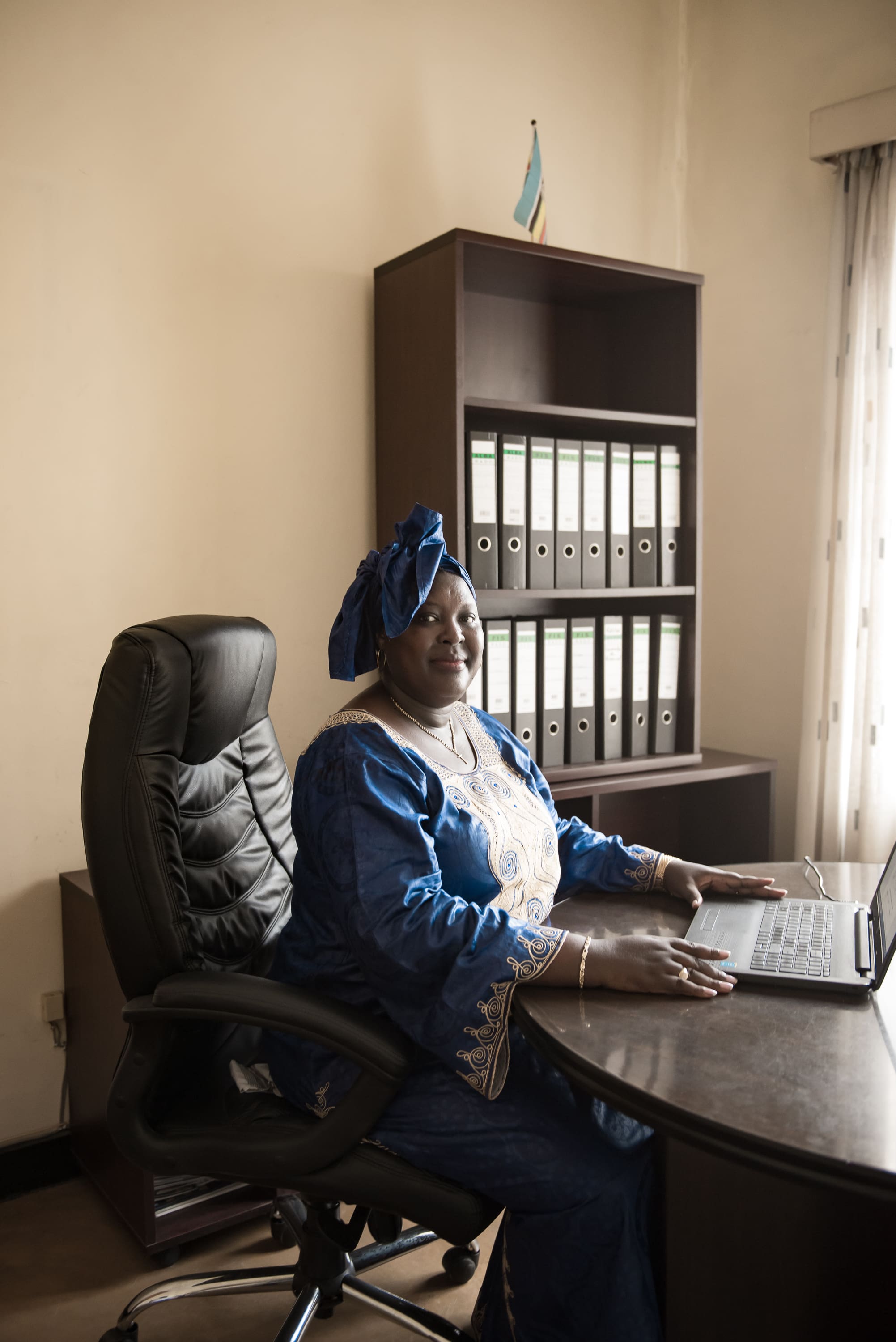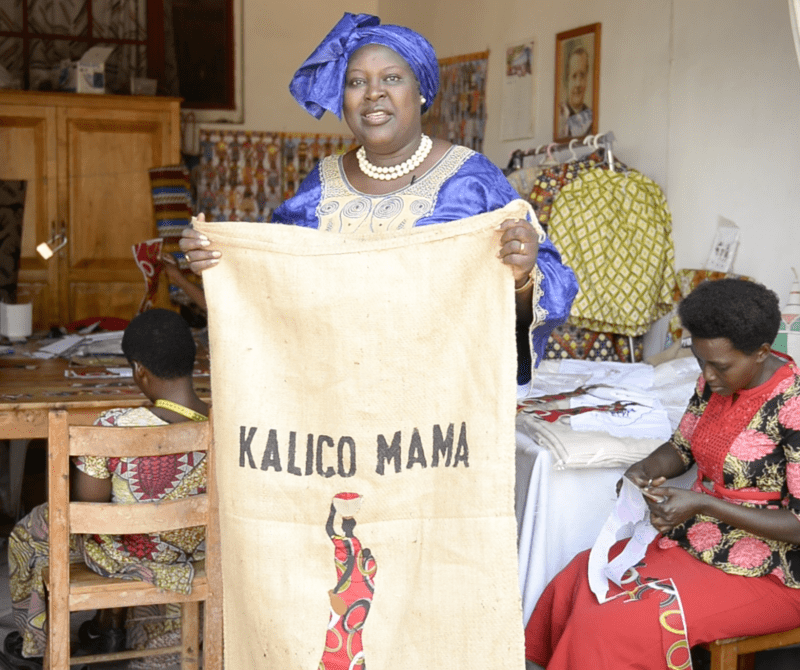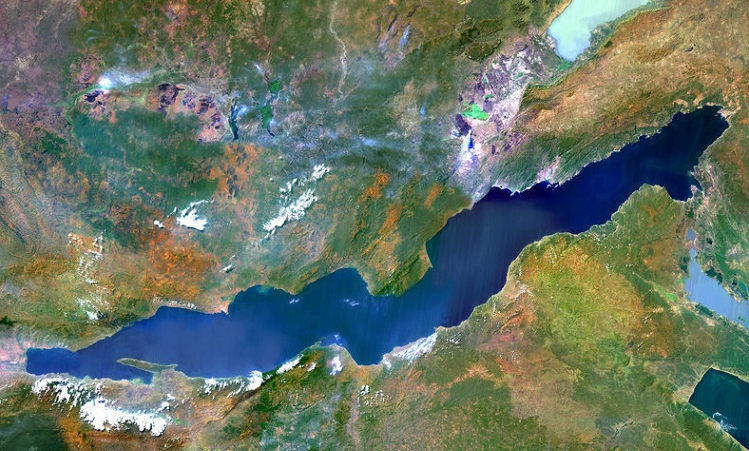Our third Burundi spotlight series post features an interview with Angele Ciza, co-founder of Kahawa Link Company (Kalico), one of our producer partners in Burundi. Our first two installments covered a brief history of Burundi and an interview about overland logistics in East Africa. Stay tuned for our final post, which will offer brewing and roasting suggestions.
Susan Heller Evenson: Hi Angele! Can you tell us a little bit about yourself and the history of Kalico?
Angele Ciza: I am Angele Ciza; I come from Burundi, the heart of Africa, and am the mother of four children. I have been in the coffee industry since 1996 when I first opened my Green Coffee Export Company called C&A Business. Being a woman in the private sector in Burundi and in the coffee industry at that period was a big challenge for me, but I love my daily life and am passionate of all good things we can do in the coffee industry. From day one, I started exporting coffee from buying it through the auction system that was in place in Burundi, and I realized that to improve the quality and producer’s relationship it was necessary to be at the production level.
Then in 2008, I started my own plantation under the name SHAMBA Coffee in my home town in Kirundo with now 40,000 trees of Bourbon variety. I produce a very small quantity that can be found at Café Grumpy cafe in New York. In 2012, with the liberalization of the industry in Burundi, I took the opportunity of purchasing seven wet mills located in northern east of Burundi in Kirundo and Muyinga provinces. I operate the wet mills under Kahawa Link Company, also known as KALICO meaning “there are cherries on the trees.” Kalico works with 44 permanent employees, 250 seasonal partners, and approximately 15,000-25,000 producers. We export an average of 10,000 bags per year, with 30% being specialty coffee and 70% commercial coffee. At Kalico, we focus on traceability and friendship that goes beyond partnership with producers and buyers.
SHE: What are your experiences with potato taste defect? How has it improved over the years?
AC: I have a very bad memory of potato defect. During the period of the auction system, a lot of instances of potato defect were found in samples sent to clients and 1/3 of sent samples were approved. Since the liberalization and privatization of the coffee industry in Burundi, there has been a significant improvement in Burundi coffee. We put all our knowledge and efforts and advice from clients of how we can fight against the potato defect. We started from the production level with producers, and at the washing stations we brought in hand picking when the parchment was still wet. Hand sorting was introduced at all levels of the value chain.
SHE: Can you share about the processing method at Kalico’s washing station?
At Kalico washing stations we do different types of processing; Natural and Honey very little demand, and we have more demand for Fully Washed. However, for all processes a good selection of red ripe cherries from underipes, overipes and foreign matter is done by farmers before delivering the coffee cherry to washing stations on the same day as their harvest. At the washing stations, selected cherries have to be selected again for eliminating the floaters by waterline before any process. For Fully Washed coffees, we do pulping, and after pulping, parchment are fermented for 14 hours and washed in proper water drawn by gravitation. After fermentation and washing, pre-drying is proceeded to select immature and broken coffees. Then good parchment goes directly on the drying tables for between 10 days to 14 days, with specific timing depending on the climate. The parchment is then stored in a clean and well-ventilated warehouse with humidity of 11-12 before being processed in a dry mill and exported.
SHE: Can you talk a bit about your “Kalico Mama” line of coffee?
AC: Kalico Mama is the name of a new brand of coffee that we produce in partnership with ATLAS and is a women-produced coffee. This coffee comes from female farmers (widows, single mothers and other women). We operate this coffee separately to other coffees delivered to the washing station. The concept behind the new brand is to promote women in the coffee industry, starting from empowering women producers as well as disabled women. We have made a special bag design to make the coffee unique and more visible. A local sewing group of disabled women sew the special bag art, and out of the profit margin we get from the coffee we will redistribute in a social corporate responsibility way or add extra money on the cherries delivered. We will work with the producers and women on a project that will be beneficial. This past (2018-2019) crop is our first production of Kalcio Mama. This year we started with Murago and Muramba washing stations. Here is a short video we produced about Kalico Mama.
SHE: Can you share about the Burundi coffee industry today (e.g. how does minimum cherry price work—is it changed throughout the season, etc?)
AC: Burundi coffee industry is liberalized where washing station owners (either government, private or cooperatives) buy cherries from farmers and process it and export green coffee bean as they wish. Minimum cherry price is announced by the government all along the season.
SHE: What have been the effects of the low ‘C’ coffee market for the coffee sector in Burundi? What have coffee farmers and the coffee industry done to weather the low ‘C’ market?
AC: There are losses that Kalico encounters when the C market is low, as cherry price is set in advance by the government and does not consider the reality of the market. The cherry price is fixed and does not change. There are no solutions set to weather the C market.
SHE: There are lots of acronyms in the Burundi coffee sector! Can you share more about what these agencies are and the role they play? Autorité de Régulation de la Filière Café (ARFIC), InterCafé, CNAC and ISABU. And what is a SOGESTAL?
AC: A SOGESTAL is a public company that manages government washing stations; ARFIC coordinates coffee value chain; Intercafe comprises all actors in the value chain.; CNAC represents coffee Farmers; and ISABU is the Agronomic Research center.
SHE: We are so excited that Burundi is the SCA portrait country this year! What is one thing you think coffee buyers should know about Burundi or coffee in Burundi?
AC: Burundi is a beautiful country with a famous lake called Lake Tanganyika and is the 2nd oldest freshwater lake in the world. Burundi coffee is the first quality in the world with high significant sweetness and acidity. Coffee is not an industrial crop here and represents the primary income for about 800,000 smallholder farmers.
SHE: Thank you for your thoughts, Angle, and we look forward to seeing you at Expo!
If you’ll be attending Expo, stop by to chat with Angele and taste some coffee from Kalico at Atlas’ Roaster Village table (#13) Friday, April 12th from 9-11am. If you can’t make it, contact your Atlas sales rep for some tasty samples!


